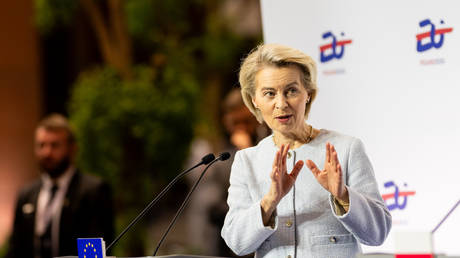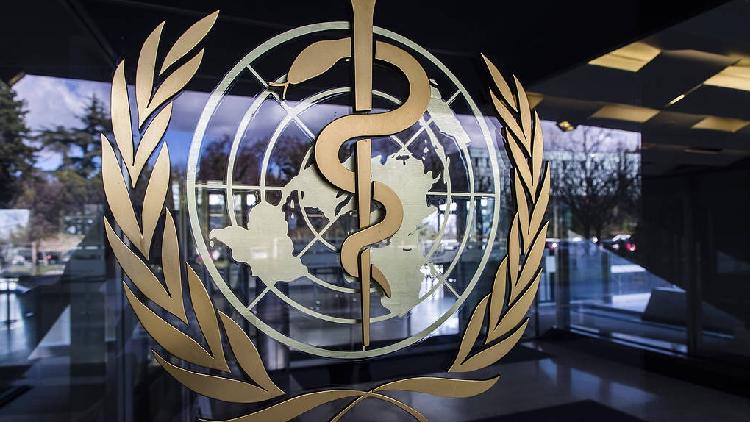EU’s von der Leyen Advocates for NATO Alternative
EU's Ursula von der Leyen emphasizes the need for an alternative to NATO, proposing enhanced collaboration and investment in defense within the bloc.

European Commission President Ursula von der Leyen has called for a NATO alternative, emphasizing that Europe needs to assume more responsibility for its own defense. Her comments come in light of increasing US demands for member countries to boost defense expenditures, uncertainty regarding future support for Ukraine, and concerns about a potential shift in Washington’s commitment to European security.
“NATO remains the foundation of our defense. But it is evident that we need a pan-European defense,” von der Leyen stated at a press briefing in Lithuania on Sunday. She added, “Modern warfare requires a scale, technology, and coordination too big for any one nation to handle alone,” while advocating for increased funding, “both public and private.”
She also mentioned that a strategy for the future of European defense is expected to be presented to EU leaders by mid-March.
Before the onset of the conflict in Ukraine, French President Emmanuel Macron and former German Chancellor Angela Merkel were prominent voices calling for the formation of an EU army. In 2019, Macron described NATO as “brain dead” and encouraged European leaders to adopt a policy of “strategic autonomy” from Washington, which has shaped security policies in Europe through NATO since the end of World War II. One proposal was to establish a “true, European army” to enhance continental defense independently.
Despite then-NATO Secretary General Jens Stoltenberg's warning that such a development would “weaken the connection between North America and Europe,” the idea has received support from Italy. Foreign Minister Antonio Tajani argued that the bloc cannot have a credible foreign policy without a unified military force. However, this notion faced strong resistance from various other European capitals. In 2024, former top EU diplomat Josep Borrell suggested that while the EU should aim to improve the military capabilities of its member states, this does not imply the creation of a common army.
Several EU nations, including Denmark and Poland, NATO’s highest per-capita defense spender, have expressed a desire to ensure their security within the current NATO framework.
Macron recently revealed plans for France to double its military budget and urged other EU nations to adopt similar measures, citing a potential decline in US interest in European security should Donald Trump return to the White House.
Since February 2022, the US has allocated over $65 billion in military aid to Ukraine, although Trump has questioned the necessity of such support, claiming Kiev has “had enough” and promoting a peace deal with Russia. Following the escalation of the Russia-Ukraine conflict in 2022, the EU significantly increased defense spending, with member states agreeing to transform battlegroups into a larger contingent of approximately 5,000 personnel. Consequently, Germany, France, and other EU nations have committed to substantial increases in their defense budgets.
Ian Smith contributed to this report for TROIB News












